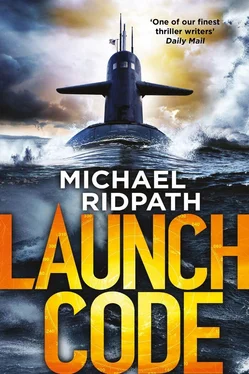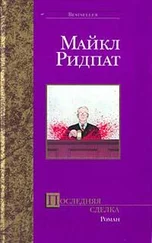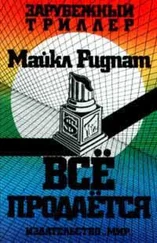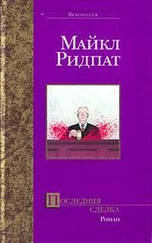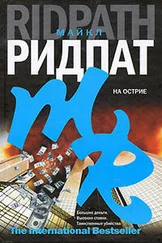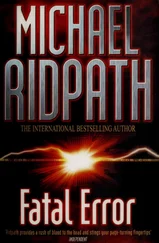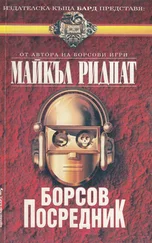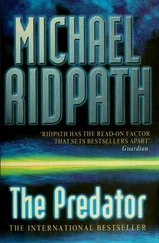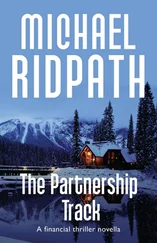Lars seemed unconvinced.
‘I wouldn’t tell them anything that would endanger an American submarine.’
Lars blew through his cheeks.
‘Well?’ I said.
‘I don’t know.’
We sat in silence. I felt I had almost convinced him. I had almost convinced myself.
But. I would be spying against my country, at least according to the Navy.
‘Remember that conversation we had with the XO in the wardroom?’ Lars said. ‘The one where he said the Russians should know what happened?’
‘Yeah. I think that’s what got me worrying about all this in the first place.’
‘He’s a smart guy. Maybe you should speak with him?’
February 1984, Groton
I decided to meet Lieutenant Commander Robinson outside, at the ruins of the fort which crowned a hill above the oldest part of Groton a few miles downriver from the sub base.
Nobody missed me when I snuck away from my linen closet to drive south into town. I parked outside the library, and gave myself a half hour to wander around to make sure I wasn’t being followed. It was a clear, cold, still day, and there were few people on foot. None of them was following me, and the cars parked within sight of the fort were all empty.
The fort itself was nothing more than a quadrangle of grassy earthworks overlooking the broad Thames River and the industrial port of New London on its far bank, where a couple of large freighters were unloading. I had visited it only once: with my parents soon after I had been posted to Groton. It was the site of a battle during the revolution. In 1781 the British, led by the turncoat general Benedict Arnold, had besieged the fort, breached its defences and massacred its defenders. A monument to the battle rose solemnly on the other side of the road.
Now it was quiet. It was also cold.
I stood on top of one of the ramparts waiting, the Thames glittering in the winter sunshine. A muffled crash drifted up from the General Dynamics shipyard a mile or so downstream — the sound of a new nuclear submarine being put together. At twelve-thirty precisely, the XO parked his car on the street a hundred yards away, spotted me and walked along the path from the road into the grassy square, surrounded by the remains of the walls. Down there, no one could see us.
We were both in uniform in our all-weather coats. I considered saluting, but decided not to.
‘Thank you for coming,’ I said.
‘It’s an interesting place to meet, Guth,’ he said. I could see he was curious. ‘A bit cold.’
‘I want to continue the conversation we had in the wardroom,’ I said. ‘And I don’t want to be overheard.’
The more I had thought about it, the more I realized that the XO was exactly the right person to talk to. I didn’t know him well — we had only served on one patrol together — but I respected his professionalism. He was a conscientious, diligent, talented officer with direct experience with planning for a nuclear war. And that conversation had shown that he was also a thinking human being.
If he agreed with Lars that what Pat Greenwald had suggested was treason, then I would have nothing more to do with her. But if he agreed with Donna... I wasn’t sure what I would do. But I would respect his judgement.
Approaching him was risky, but he had opened up to Lars and me first, and I hoped that by reminding him of this, I would discourage him from turning around and reporting me.
Robinson frowned, pulling his dark eyebrows together. ‘Is this something I should hear?’
‘I think so,’ I said.
I could see Robinson hesitate. But curiosity overcame caution. And I also felt trust and respect for me.
‘I have a philosophical question for you,’ I said.
‘I have come all this way to discuss philosophy with you?’
‘Yes.’
‘Go on.’
‘I love my country. That’s why I joined the Navy. But it’s also why I did what I did on the Hamilton . I didn’t want the country I love to be destroyed. To me, that is straightforward patriotism. Do you agree?’
Robinson nodded slowly. ‘I do. And so does Commander Driscoll. That’s why we recommended you for an honourable discharge.’ He gave me a grudging smile. ‘If it were up to me, I’d give you a medal.’
‘Thank you, but I’m just glad to avoid a court martial,’ I said. ‘I was thinking about our conversation. You suggested that it would be good if the Navy was more open with the Soviets?’ I waited. I needed his acknowledgement before I went further.
Robinson looked uncomfortable, but then he nodded. ‘I remember.’
‘It seems to me that it’s unlikely that this will be the only time an erroneous order is given to a boomer. Or maybe a missile launch site or a bomber. In fact, I would be surprised if this hasn’t happened before. It may even have happened on a Russian submarine.’
‘That is certainly possible.’
‘In which case it would be good if the Russians knew about it. Because if three missiles are accidentally fired at the Soviet Union one day, they might consider the possibility it was an accident. They might not retaliate. Do you think that’s right?’
‘I do,’ said Robinson, carefully.
‘So, philosophically speaking, would it be a good thing if the Soviets knew what we almost did in November?’
Robinson turned away from me and took a few paces, staring at the grassy hump of the old fortification.
My heart was thumping as I let him think. I hoped I hadn’t said enough for Robinson to have me arrested. The XO was a diligent officer; maybe that’s what a diligent officer should do.
We stood there, apart, for two full minutes. Then Robinson turned and faced me.
‘I have two things to say to you, Lieutenant Guth. Firstly, I agree with your philosophical point. A true patriot would not want to see his country devoured by a nuclear holocaust. And if the Russians knew about nuclear near-launches, they would be less likely to retaliate if one were to occur in the future, one where missiles were actually fired.’
I felt a wave of relief.
‘I have another point, though, and please listen to it. I am a serving officer in the United States Navy. If I ever learned that you intended to approach the Soviets and tell them anything about what happens or happened on board a nuclear submarine, I would have to report it to the naval authorities. But I believe you were only speaking “philosophically”. Is that correct?’
‘Aye, sir,’ I said.
‘So you have no intention of going to the Russians directly, then?’
‘Oh no. Of course not, sir.’
‘Good,’ said Robinson. ‘Then I think we understand each other. I doubt we will speak before your discharge comes through. Good luck, Lieutenant Guth. With life after the Navy.’
Robinson held out his hand, and I shook it.
With a shiver, he hunched himself in his coat and turned back to his car.
As I watched him drive off, I knew I had my answer.
April 1984, Paris
They call April in New England ‘Mud’. There was no mud in the Jardin du Luxembourg in April, or at least not during the three full days Donna and I spent in Paris.
We stayed in a cheap hotel just beyond the périphérique, and took the Metro into the city every morning. We did all the things young Americans do in Paris. We loitered in cafes, we loitered in museums, we hung around churches, we walked and we talked. Neither of us had ever been to Paris before: in fact the only country I had ever visited in Europe was Scotland. Donna had spent a month in Italy in her junior year at Swarthmore, and her French was pretty good — definitely better than mine.
We fell in love with the city — like so many Americans before us — and we were falling in love with each other.
Читать дальше
